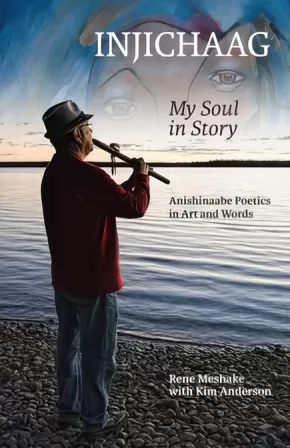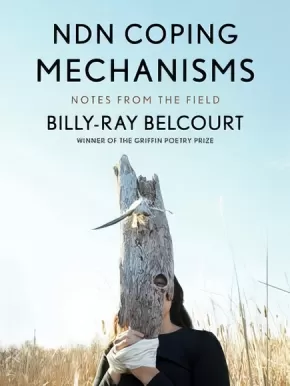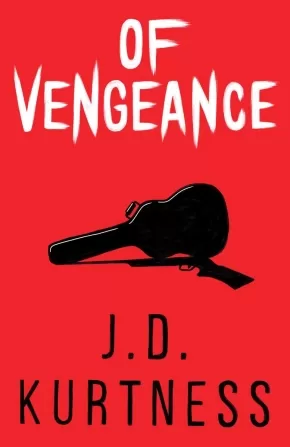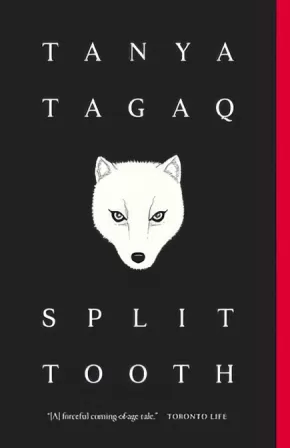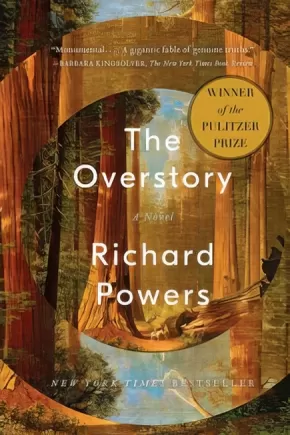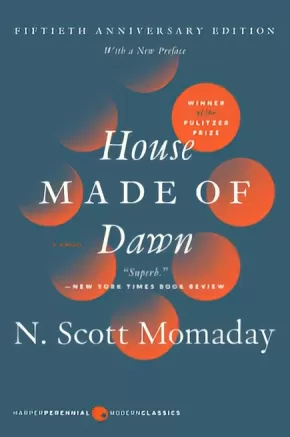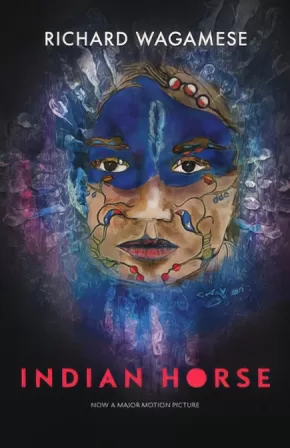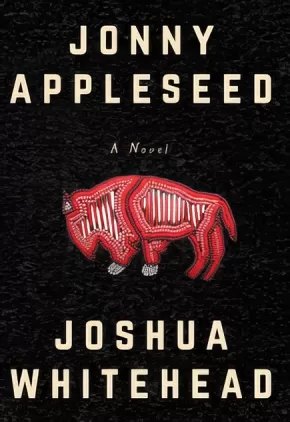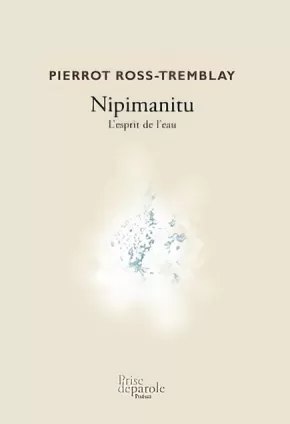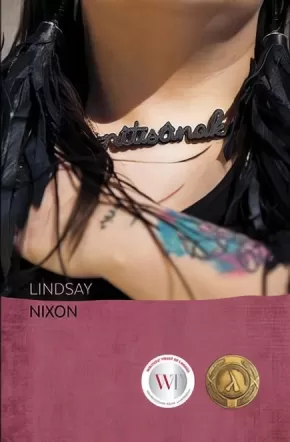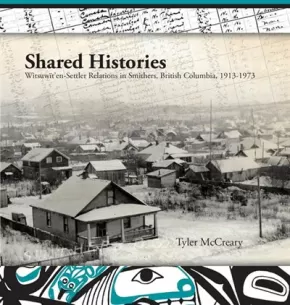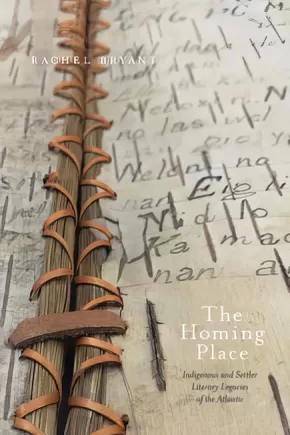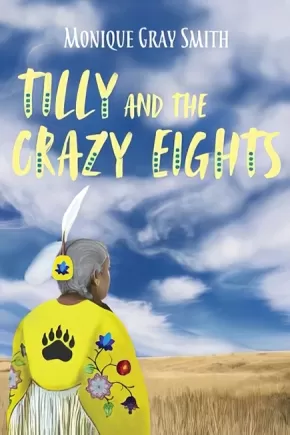Award-Winning
Synopsis:
This book shares the life story of Anishinaabe artist Rene Meshake in stories, poetry, and Anishinaabemowin “word bundles” that serve as a dictionary of Ojibwe poetics. Meshake was born in the railway town of Nakina in northwestern Ontario in 1948, and spent his early years living off-reserve with his grandmother in a matriarchal land-based community he calls Pagwashing. He was raised through his grandmother’s “bush university,” periodically attending Indian day school, but at the age of ten Rene was scooped into the Indian residential school system, where he suffered sexual abuse as well as the loss of language and connection to family and community. This residential school experience was lifechanging, as it suffocated his artistic expression and resulted in decades of struggle and healing. Now in his twenty-eighth year of sobriety, Rene is a successful multidisciplinary artist, musician and writer. Meshake’s artistic vision and poetic lens provide a unique telling of a story of colonization and recovery.
The material is organized thematically around a series of Meshake’s paintings. It is framed by Kim Anderson, Rene’s Odaanisan (adopted daughter), a scholar of oral history who has worked with Meshake for two decades. Full of teachings that give a glimpse of traditional Anishinaabek lifeways and worldviews, Injichaag: My Soul in Story is “more than a memoir.”
Awards
- 2020 Indigenous Voices Awards Winner for Works in an Indigenous Language
Reviews
“This is the story of an Anishinaabe journey across time and space. This is more than an autobiography of trauma, it is a celebration of resilience.”– Margaret Noodin, Associate Professor, English and American Indian Studies, University of Wisconsin-Milwaukee
Educator Information
Table of Contents
Invocation
Family Tree
Community Tree
Introduction
Section 1 Odinimanganikadjigan
Section 2 Nibinaabe
Section 3 Wikwedong
Section 4 Bimisi
Section 5 Miskwadesshimo
Section 6 Papawangani
Section 7 Migisiwiganj
Epilogue
Additional Information
240 pages | 5.50" x 8.50"
Synopsis:
TIME: All.
SPACE: The Multiverse.
Come along for the ride to Kamloopa, the largest Powwow on the West Coast. This high-energy Indigenous matriarchal story follows two urban Indigenous sisters and a lawless Trickster who face our postcolonial world head-on as they come to terms with what it means to honour who they are and where they come from. But how to go about discovering yourself when Christopher Columbus allegedly already did that? Bear witness to the courage of these women as they turn to their Ancestors for help in reclaiming their power in this ultimate transformation story.
In developing matriarchal relationships and shared Indigenous values, Kamloopa explores the fearless love and passion of two Indigenous women reconnecting with their homelands, Ancestors, and stories. Kim Senklip Harvey’s play is a boundary-blurring adventure that will remind you to always dance like the Ancestors are watching.
Kamloopa: An Indigenous Matriarch Story is the work of Kim Senklip Harvey, a proud Indigenous woman from the Syilx, Tsilhqot’in, Ktunaxa, and Dakelh First Nations, listed for the Gina Wilkinson Prize for her work as an emerging director and widely considered to be one of this land’s most original voices among the next generation of Indigenous artists.
Awards
- 2020 Governor General's Award for English-language drama
Reviews
"A thoughtful, funny, and compelling exploration of the complexities of Indigenous community making and knowledge reclamation."—BC Studies
“Kamloopa is a hilarious and courageous transformation story. Kim Senklip Harvey makes a generous invitation for all of us to bear witness to the joy, resilience, and brilliance of Indigenous women.”—Christine Quintana
“This story about three women who are actively trying to decolonize themselves (whether they realize it or not) resonated deeply … Uplifting the voices of Indigenous women, Two-Spirit, and non-binary folks is incredibly important to our resistance and our communities. Kamloopa is one of those stories providing that platform.”—Yolanda Bonnell
“Kamloopa brought me an empowerment of self and a reclaiming of knowledge. It brought me sisterhood and ties that have shaped the way I create and approach life. As an Indigenous woman I felt seen, heard, and valid, something we should all experience. Miigwech.”—Samantha Brown
Educator Information
Recommended in the Canadian Indigenous Books for Schools 2020/2021 resource list for grades 8 to 12 for Acting, Drama, Theatre, and English Language Arts.
The Syilx language, Nsyilxcǝn, is used throughout this play. Also included is the resource "Fire Zine! A Kamloopa Study Buddy" by Kimi Clark. It discusses Indigenous artistic ceremony Protocol, Indigenous Theatre terms, and guides users in facilitating a Talking Circle.
Additional Information
|
Synopsis:
A stunning new voice in nature writing makes an epic journey along the Yukon River to give us the stories of its people and its protagonist--the king salmon, or the Chinook--and the deepening threat to a singular way of life, in a lyrical, evocative and captivating narrative.
The Yukon River is 3,190 kilometres long, flowing northwest from British Columbia through the Yukon Territory and Alaska to the Bering Sea. Every summer, millions of salmon migrate the distance of this river to their spawning ground, where they go to breed and then die. The Chinook is the most highly prized among the five species of Pacific salmon for its large size and rich, healthy oils. It has long since formed the lifeblood of the economy and culture along the Yukon--there are few communities that have been so reliant on a single source. Now, as the region contends with the effects of a globalized economy, climate change, fishing quotas and the general drift towards urban life, the health and numbers of the Chinook are in question, as is the fate of the communities that depend on them.
Travelling in a canoe along the Yukon River with the migrating salmon, a three-month journey through untrammeled wilderness, Adam Weymouth traces the profound interconnectedness of the people and the Chinook through searing portraits of the individuals he encounters. He offers a powerful, nuanced glimpse into the erosion of indigenous culture, and into our ever-complicated relationship with the natural world. Weaving in the history of the salmon run and their mysterious life cycle, Kings of the Yukon is extraordinary adventure and nature writing and social history at its most compelling.
Awards
- 2019 Lonely Planet Adventure Travel Book of the Year Winner
- 2018 Sunday Times/Peters Fraser + Dunlop Young Writer of the Year Award
Reviews
“Travel writing? Climate change? Here’s a book that does it all . . . He writes like Annie Dillard, Bruce Chatwin and Jack London combined: suspenseful and sensitive storytelling and sumptuous descriptions.” —National Observer
“Shift over, Pierre Berton and Farley Mowat. You, too, Robert Service. Set another place at the table for Adam Weymouth, who writes as powerfully and poetically about the Far North as any of the greats who went before him.” —Roy MacGregor, author of Original Highways: Travelling the Great Rivers of Canada
“A moving, masterful portrait of a river, the people who live on its banks, and the salmon that connect their lives to the land. It is at once travelogue, natural history, and a meditation on the sort of wildness of which we are intrinsically a part. Adam Weymouth deftly illuminates the symbiosis between humans and the natural world—a relationship so ancient, complex, and mysterious that it just might save us.” —Kate Harris, author of Lands of Lost Borders: Out of Bounds on the Silk Road
“I thoroughly enjoyed traveling the length of the Yukon River with Adam Weymouth, discovering the essential connection between the salmon and the people who rely upon them. What a joy it is to be immersed in such a remote and wondrous landscape, and what a pleasure to be in the hands of such a gifted narrator.” —Nate Blakeslee, author of The Wolf: A True Story of Survival and Obsession in the West
“Beautiful, restrained, uncompromising. The narrative pulls you eagerly downstream roaring, chuckling and shimmering just like the mighty Yukon itself.” —Ben Rawlence, author of City of Thorns
“An enthralling account of a literary and scientific quest. Adam Weymouth vividly conveys the raw grandeur and deep silences of the Yukon landscape, and endows his subject, the river’s King Salmon, with a melancholy nobility.” —Luke Jennings, author of Atlantic and Codename Villanelle
“Adam Weymouth's account of his canoe trip down the Yukon River is both stirring and heartbreaking. He ably describes a world that seems alternately untouched by human beings and teetering at the brink of ruin.” —David Owen, author of Where the Water Goes
Additional Information
288 pages | 5.18" x 8.00"
Synopsis:
In the follow-up to his Griffin Poetry Prize-winning collection, This Wound is a World, Billy-Ray Belcourt aims more of an anthropological eye at the contours of NDN and queer social worlds to spot much that is left unsaid when we look only to the mainstream media. In this genre-bending work, Belcourt employs poetry, poetics, prose, and textual art to illuminate the rogue possibilities bubbling up everywhere NDNs are.
Part One examines the rhythms of everyday life, which include the terrible beauty of the reserve, the afterlives of history, and the grammar of anal sex. Part Two experiments with form and practice, putting to use, for example, a mode of documentary poetics that unearths the logics that make and unmake texts like Treaty 8.
NDN Coping Mechanisms: Notes from the Field emerges out of a form of auto/ethnographic sensibility that is at turns campy and playful, jarring and candid, displaying, once again, the writer’s extraordinary craft, guile, audacity, and the sheer dexterity of his imagination.
Awards
- 2019 Stephan G. Stephansson Award for Poetry Winner
Reviews
"This brilliant book is endlessly giving, lingering in tight spaces within the forms of loneliness, showing us their contours. These poems do the necessary work of negotiating with the heart-killing present from which we imagine and make Indigenous futures. Every line feels like a possible way out of despair.” — Elissa Washuta, author of My Body Is a Book of Rules
“‘I believe I exist. / To live, one can be neither / more nor less hungry than that.’ How grateful I am that Billy-Ray Belcourt and these poems believe in themselves enough to exist. With prodigious clarity, this work moves swiftly amongst theory and prose, longing and lyric, questioning and coping, ‘not dying’ and ‘obsessively apologizing to the moon for all that she has to witness.’ It is not hyperbole to say these poems are brilliant. And so brilliantly, searingly, they live.” — TC Tolbert, author of Gephyromania
“NDN Coping Mechanisms is a haunting book that dreams a new world — a ‘holy place filled with NDN girls, hair wet with utopia’ — as it simultaneously excoriates the world that ‘is a wound’ and the historic and present modalities of violence against Indigenous peoples under Canadian settler colonialism. Belcourt considers the genocidal nation-state, queerness, and the limits and potential of representation, often through a poetic/scholarly lineage that includes Leanne Betasamosake Simpson, Saidiya Hartman, Anne Boyer, José Esteban Muñoz, Christina Sharpe, and Gwen Benaway, among others. This is the beautiful achievement of NDN Coping Mechanisms: Belcourt conjures a sovereign literary space that refuses white sovereignty and is always already in relation to the ideas of the foremost decolonial poets and thinkers of Turtle Island.” — Mercedes Eng, author of Prison Industrial Complex Explodes
Additional Information
112 pages | 6.00" x 8.00"
Synopsis:
“Let's be honest: Who hasn't fantasized about shooting someone in the face with a hunting rifle?”
One day, a thirteen-year-old girl decides to startle a classmate. Instead, she accidentally kills him.
And she likes it.
Over the years, she begins experimenting with murder. Her victims are, of course, people that deserve it: a careless driver, a CEO of an energy corporation that is destroying the planet, a rapist. Every crime scene is flawless — untraceable and made to look like an accident or suicide. But, as she sleepwalks through her day job and lives in a crummy apartment, one thing becomes increasingly clear: she needs more.
Because nothing compares to the thrill of violent retribution.
Awards
- The French version of this book won the Indigenous Voices Award for French Prose in 2018.
Reviews
"Kurtness writes smoothly … Readers into passive-aggressive fantasies will best appreciate this one."— Publishers Weekly
"This chiseled writing, this extraordinary character and this particular humour may seduce the most difficult reader." — Le Devoir
"A softly creepy look into a sociopath starting with her thoughts as a 12-year-old. Narrated in a non-linear fashion, she starts with an incident from her past and her philosophy of who deserves to be punished. She’s out for revenge on wrongdoers who bully or disrupt the environment. She grew up with loving parents and a nice home but this is how she is wired. I’m not sure how I feel about the ending but I can see how she evolved to commit that last act." — Audrey Huang, Belmont Books
Educator Information
Translated by Pablo Strauss, who has translated many works of Quebec fiction into English. He grew up in Victoria, B.C., and has lived in Quebec City for fifteen years.
Additional Information
160 pages | 5.00" x 7.00" | Paperback
Synopsis:
From the internationally acclaimed Inuit throat singer who has dazzled and enthralled the world with music it had never heard before, a fierce, tender, heartbreaking story unlike anything you've ever read.
Fact can be as strange as fiction. It can also be as dark, as violent, as rapturous. In the end, there may be no difference between them.
A girl grows up in Nunavut in the 1970s. She knows joy, and friendship, and parents' love. She knows boredom, and listlessness, and bullying. She knows the tedium of the everyday world, and the raw, amoral power of the ice and sky, the seductive energy of the animal world. She knows the ravages of alcohol, and violence at the hands of those she should be able to trust. She sees the spirits that surround her, and the immense power that dwarfs all of us.
When she becomes pregnant, she must navigate all this.
Veering back and forth between the grittiest features of a small arctic town, the electrifying proximity of the world of animals, and ravishing world of myth, Tanya Tagaq explores a world where the distinctions between good and evil, animal and human, victim and transgressor, real and imagined lose their meaning, but the guiding power of love remains.
Haunting, brooding, exhilarating, and tender all at once, Tagaq moves effortlessly between fiction and memoir, myth and reality, poetry and prose, and conjures a world and a heroine readers will never forget.
Awards
- Winner of the 2019 Indigenous Voices Awards for Published Prose in English.
- Winner of the 2018 Alcuin Society Awards for Excellence in Book Design – Prose Fiction
Reviews
“Tagaq’s surreal meld of poetry and prose transmutes the Arctic’s boundless beauty, intensity, and desolation into a wrenching contemporary mythology.” –The New Yorker
“Though the protagonist’s coming-of-age story, generously and lovingly documented by Tagaq, is the anchor, Split Tooth is not a book that can be fully absorbed in one sitting. It’s possible to sink deeper and deeper into the narrative with each successive reading. Like a smirking teenager, Split Tooth blithely gives typical literary expectations the finger, daring us to see and experience narrative as chaotic, emotional, and deeply instinctive. And it succeeds.” –Quill and Quire
“Tanya’s book is one of the most incredible things I’ve ever read. It’s deeply profound, emotional and personal, and furthers her artistic experimentation and genius into a new realm. I love her even more after reading it, and I’m once again awed by her talent.” –Jesse Wente, CBC Broadcaster
"[A] forceful coming-of-age tale.” –Toronto Life magazine
Additional Information
|
Synopsis:
The Overstory, winner of the 2019 Pulitzer Prize in Fiction, is a sweeping, impassioned work of activism and resistance that is also a stunning evocation of—and paean to—the natural world. From the roots to the crown and back to the seeds, Richard Powers’s twelfth novel unfolds in concentric rings of interlocking fables that range from antebellum New York to the late twentieth-century Timber Wars of the Pacific Northwest and beyond. There is a world alongside ours—vast, slow, interconnected, resourceful, magnificently inventive, and almost invisible to us. This is the story of a handful of people who learn how to see that world and who are drawn up into its unfolding catastrophe.
Reviews
"The best book I’ve read in 10 years. It’s a remarkable piece of literature, and the moment it speaks to is climate change. So, for me, it’s a lodestone. It’s a mind-opening fiction, and it connects us all in a very positive way to the things that we have to do if we want to regain our planet."—Emma Thompson
"An ingeniously structured narrative that branches and canopies like the trees at the core of the story whose wonder and connectivity echo those of the humans living amongst them."—citation from the Pulitzer Prize in Fiction
"This book is beyond special.… It’s a kind of breakthrough in the ways we think about and understand the world around us, at a moment when that is desperately needed."—Bill McKibben
"This ambitious novel soars up through the canopy of American literature and remakes the landscape of environmental fiction.… Remarkable."—Ron Charles, The Washington Post
"Monumental… The Overstory accomplishes what few living writers from either camp, art or science, could attempt. Using the tools of the story, he pulls readers heart-first into a perspective so much longer-lived and more subtly developed than the human purview that we gain glimpses of a vast, primordial sensibility, while watching our own kind get whittled down to size.… A gigantic fable of genuine truths." —Barbara Kingsolver, The New York Times Book Review
Additional Information
512 pages | 5.49" x 8.21"
Synopsis:
A special 50th anniversary edition of the magnificent Pulitzer Prize-winning novel from renowned Kiowa writer and poet N. Scott Momaday, with a new preface by the author.
A young Native American, Abel has come home from war to find himself caught between two worlds. The first is the world of his father’s, wedding him to the rhythm of the seasons, the harsh beauty of the land, and the ancient rites and traditions of his people. But the other world—modern, industrial America—pulls at Abel, demanding his loyalty, trying to claim his soul, and goading him into a destructive, compulsive cycle of depravity and disgust.
An American classic, House Made of Dawn is at once a tragic tale about the disabling effects of war and cultural separation, and a hopeful story of a stranger in his native land, finding his way back to all that is familiar and sacred.
Reviews
“Both a masterpiece about the universal human condition and a masterpiece of Native American literature. . . . A book everyone should read for the joy and emotion of the language it contains.” — The Paris Review
“A new romanticism, with a reverence for the land, a transcendent optimism, and a sense of mythic wholeness...Push[es] the secular mode of modern fiction into the sacred mode, a faith and recognition in the power of the world.” — American Literature
Additional Information
224 pages | 5.31" x 8.00"
Synopsis:
Saul Indian Horse has hit bottom. His last binge almost killed him, and now he’s a reluctant resident in a treatment centre for alcoholics, surrounded by people he’s sure will never understand him. But Saul wants peace, and he grudgingly comes to see that he’ll find it only through telling his story. With him, readers embark on a journey back through the life he’s led as a northern Ojibway, with all its joys and sorrows.
With compassion and insight, author Richard Wagamese traces through his fictional characters the decline of a culture and a cultural way. For Saul, taken forcibly from the land and his family when he’s sent to residential school, salvation comes for a while through his incredible gifts as a hockey player. But in the harsh realities of 1960s Canada, he battles obdurate racism and the spirit-destroying effects of cultural alienation and displacement. Indian Horse unfolds against the bleak loveliness of northern Ontario, all rock, marsh, bog and cedar. Wagamese writes with a spare beauty, penetrating the heart of a remarkable Ojibway man.
Awards
- 2013 Burt Award for First Nations, Métis, and Inuit Literature
- 2013 First Nation Communities Read Award
Reviews
"Richard Wagamese is a master storyteller, who blends the throb of life with spiritual links to the land, hard work, and culture to find success, his words take you into the soul of Indian Horse, to experience his pain, his growing resentments, his depression, and his fear which has to be faced if he is to regain the joy of life. This book is meant for youth, adults, and elders, to be shared, to be lived, and to be treasured for the clear message of hope and the need to go the distance." — Wawatay News
“…The hockey chapters are compelling; they evoke Sherman Alexie’s fiction that examines contemporary life on American Indian reservations through the lens of basketball. But it is as a story of reconciliation that this novel reveals Wagamese’s masterful subtly…In a single image, Wagamese complicates in blinding ways the entire narrative; in a single page, Indian Horse deepens from an enjoyable read to a gripping critique of Canada.” — Kyle Carsten Wyatt, The Walrus, 2012
Educator Information
Grades 10-12 BC English First Peoples resource for units on Lost People, Reconciliation, and Place-Conscious Learning.
Caution: Substance Abuse, Mature Content
Additional Information
232 pages | 5.50" x 8.50"
This special edition of Richard Wagamese’s novel Indian Horse has been released to coincide with the release of the film Indian Horse in the spring of 2018.
Synopsis:
A tour-de-force debut novel about a Two-Spirit Indigiqueer young man and proud NDN glitter princess who must reckon with his past when he returns home to his reserve.
"You're gonna need a rock and a whole lotta medicine" is a mantra that Jonny Appleseed, a young Two-Spirit/Indigiqueer, repeats to himself in this vivid and utterly compelling debut novel by poet Joshua Whitehead.
Off the reserve and trying to find ways to live and love in the big city, Jonny becomes a cybersex worker who fetishizes himself in order to make a living. Self-ordained as an NDN glitter princess, Jonny has one week before he must return to the "rez"--and his former life--to attend the funeral of his stepfather. The seven days that follow are like a fevered dream: stories of love, trauma, sex, kinship, ambition, and the heartbreaking recollection of his beloved kokum (grandmother). Jonny's life is a series of breakages, appendages, and linkages--and as he goes through the motions of preparing to return home, he learns how to put together the pieces of his life.
Jonny Appleseed is a unique, shattering vision of First Nations life, full of grit, glitter, and dreams.
Awards
- 2021 Canada Reads winner
Reviews
"If we're lucky, we'll find one or two books in a lifetime that change the language of story, that manage to illuminate new curves in the flat vessels of old letters and words. This is one of those books. Jonny Appleseed gifts us with clarity in the shape of sharp, and medicine in the guise of soft -- and a sexy, powerful, broken, beautiful hero who has enough capacity in the dent of a clavicle to hold all the tears of his family. This book gives us back the land of curb and field, trailer and ledge, and the community -- in all its rusted and complicated glory. Most importantly, this book gifts us with the opportunity to hear the innovative and the ancient in the prose of a new literary goddess, Joshua Whitehead." ―Cherie Dimaline, author of The Marrow Thieves
"Joshua Whitehead redefines what queer Indigenous writing can be in his powerful debut novel. Jonny Appleseed transcends genres of writing to blend the sacred and the sexual into a vital expression of Indigenous desire and love. Reading it is a coming home to bodies, stories, and experiences of queer Indigenous life that has never been so richly and honestly shown before. This book is an honour song to every queer NDN body who has ever lived and it will transform the universe with its beauty and magic." ―Gwen Benaway, author of Passage
Educator Information
Caution: graphic/mature content such as sexual descriptions.
Additional Information
224 pages | 5.50" x 8.00"
Synopsis:
Nipimanitu (L’esprit de l’eau) offre une poésie spirituelle et mystique de l’effondrement, écrite dans l’urgence de tout dire. En trois mouvements – amour intégral, chute et trahison, puis résilience et retour à la vision claire –, il livre un chant révolutionnaire, puisant aux sources de la conscience, du rêve et de la mémoire, qui appelle à une transformation radicale de notre regard sur le monde.
La poésie symboliste de Ross-Tremblay traduit une métaphysique profondément innue qui repousse les limites du langage. L’auteur y exprime une cosmogonie qui aspire à l’immanence et à l’osmose entre l’humain et ce qui fonde sa vie.
Awards
- 2019 Indigenous Voices Award winner for Published Works in French
Educator Information
Genre: Poetry
Subjects & Themes: Indigenous Canadian; Nature
Additional Information
134 pages | 5.51" x 8.50"
Synopsis:
Lindsay Nixon's nîtisânak honours blood and chosen kin with equal care. A groundbreaking memoir spanning nations, prairie punk scenes, and queer love stories, it is woven around grief over the loss of their mother. It also explores despair and healing through community and family, and being torn apart by the same. Using cyclical narrative techniques and drawing on their Cree, Saulteaux, and Métis ancestral teachings, this work offers a compelling perspective on the connections that must be broken and the ones that heal.
Awards
- 2019 Indigenous Voices Award short-listed
- 2019 The Dayne Ogilvie Prize for LGBTQ Emerging Writers
Reviews
"A tremendous gift... unlike any other reading experience I've had" - Leanne Betasamosake Simpson
"A triumph of decolonial and non-normative storytelling." -Dayne Ogilvie Prize for LGBTQ2S+ Emerging Writers jury citation
"nitisanak is wildly interesting, thoughtful, and tender, but also utterly uncompromising." -Jessie Loyer, The Capilano Review
Additional Information
200 pages | 5.25" x 8.00" |
Synopsis:
Using extensive first-hand interviews with both Witsuwit'en and settler elders, Shared Histories describes what happened in the 50 years after the Grand Trunk Pacific Railway established Smithers in the middle of Witsuwit'en territory in northwest British Columbia. By examining these relationships in the context of the history of colonization throughout the province, the author has written an open and honest portrayal of the ways in which the Witsuwit'en were marginalized, but still managed to create and maintain a place for themselves in a community that didn't want them.
Written with extensive consultation with members of the Witsuwit'en community and some of the town's earliest settler families, Shared Histories brings to life the often unwritten history of the ways in which these communities both clashed and joined forces. Its careful use of academic sources and the lived experience of participants make it the kind of history we all need to read.
This book will appeal to history buffs, educators, and academics and to those interested in First Nations and British Columbia history, truth, and reconciliation projects.
Awards
- Winner of the 2019 Lieutenant Governor's Medal for Historical Writing
Additional Information
200 pages | 9.50" x 9.00"
Synopsis:
Can literary criticism help transform entrenched Settler Canadian understandings of history and place? How are nationalist historiographies, insular regionalisms, established knowledge systems, state borders, and narrow definitions continuing to hinder the transfer of information across epistemological divides in the twenty-first century? What might nation-to-nation literary relations look like? Through readings of a wide range of northeastern texts – including Puritan captivity narratives, Wabanaki wampum belts, and contemporary Innu poetry – Rachel Bryant explores how colonized and Indigenous environments occupy the same given geographical coordinates even while existing in distinct epistemological worlds. Her analyses call for a vital and unprecedented process of listening to the stories that Indigenous peoples have been telling about this continent for centuries. At the same time, she performs this process herself, creating a model for listening and for incorporating those stories throughout.
This commitment to listening is analogous to homing – the sophisticated skill that turtles, insects, lobsters, birds, and countless other beings use to return to sites of familiarity. Bryant adopts the homing process as a reading strategy that continuously seeks to transcend the distortions and distractions that were intentionally built into Settler Canadian culture across centuries.
Reviews
"The Homing Place enacts and advocates for a paradigm shift in ‘literary relations’ in North America, revealing the ’invisible wall ’ in colonial perceptions that may at first seem as impermeable as the nation-state borders that divide the continent. Yet just as Indigenous people and homelands have always traversed those borders, so may our readings transcend that wall. Rachel Bryant foregrounds and leads us to acknowledge the active ways our embodied minds evade or engage Indigenous contexts and communities, producing greater awareness of the impacts of our activities as readers and writers, Native people and settlers, those who make policy, and those who are most impacted by it.”— Lisa Brooks
“Bryant’s excavation of US and Canadian exceptionalisms could not be timelier. She shows how Anglo-Atlantic writing has built a ‘system of self-protection’ that has sought to contain Indigenous geographies and indeed Indigenous agency. At the same time, she shows how First Nations have always effectively written back against this system. This book shines new light on settler colonialism and Indigenous resurgence, historic and contemporary, through sharp analyses of some influential but lesser-discussed writers. It belongs on the shelf of every scholar in Indigenous Studies, Canadian Studies, American Studies, Atlantic and Maritime Studies, Material Culture Studies, Cultural Geography, and Literary Criticism, for it creates fresh new dialogues among all of these fields and interests.”— Siobhan Senier
"If you are interested in Indigenous affairs, the history of how the eastern tribes came to be in such dire straits today, and how literature has reflected these changes – and even attempts to embrace and effect change for the better – then The Homing Place will certainly appeal to you."— The Miramichi Reader
Awards
- 2017 Writers’ Federation of New Brunswick Book Award for Non-Fiction winner
- 2018 AUP Book Jacket and Journal Show Selected Entry joint winner
Additional Information
256 pages | 6.00" x 9.00"
Synopsis:
An unexpected journey can be powerful medicine.
When Tilly receives an invitation to help drive eight elders on their ultimate bucket list road trip to Albuquerque, New Mexico, for the Gathering of Nations Pow Wow, she impulsively says yes. Before she knows it, Tilly has said goodbye to her family and is behind the wheel—ready to embark on an adventure that will transform her in ways she could not predict, just as it will for each and every one of the seniors on the trip, who soon dub themselves “the Crazy Eights.”
Tilly and the Crazy Eights each choose a stop to make along the way—somewhere they’ve always wanted to go or something they’ve wanted to experience. This takes them on a route to Las Vegas and Sedona, with a final goal of reaching the Redwood Forest. Each stop becomes the inspiration for secrets and stories to be revealed. The trip proves to be powerful medicine as they laugh, heal, argue, and reveal hopes and dreams along the way. With friendships forged, love found, hearts broken and mended, Tilly and the Crazy Eights feel ready for anything by the time their bus rolls to a stop in New Mexico. But are they?
Educator Information
This is a fictional novel for adults from the author of the groundbreaking children's books Speaking Our Truth: A Journey of Reconciliation and My Heart Fills with Happiness.
Reviews
"Tilly and the Crazy Eights, [is] a sequel of sorts to Smith’s first book [Tilly: A Story of Hope and Resilience].... In Smith’s first novel, Tilly was coming of age and into sobriety; now the reader finds her at mid-life, a married mother of two who’s at a crossroads. The opportunity to spend two weeks with Elders and receive the gifts of their teachings is the medicine she needs. Ideas of medicine recur throughout the text – laughter is medicine, and so are tears and words. For everyone, this will be a journey about healing..... Most powerfully, Smith infuses her novel with joy, love, and laughter and suggests that these could be what determine the future after all."— Quill & Quire, September 2018
Educator Information
The Canadian Indigenous Books for Schools list recommends this resource for Grades 10-12 English Language Arts.
Additional Information
230 pages | 5.50" x 8.50"

